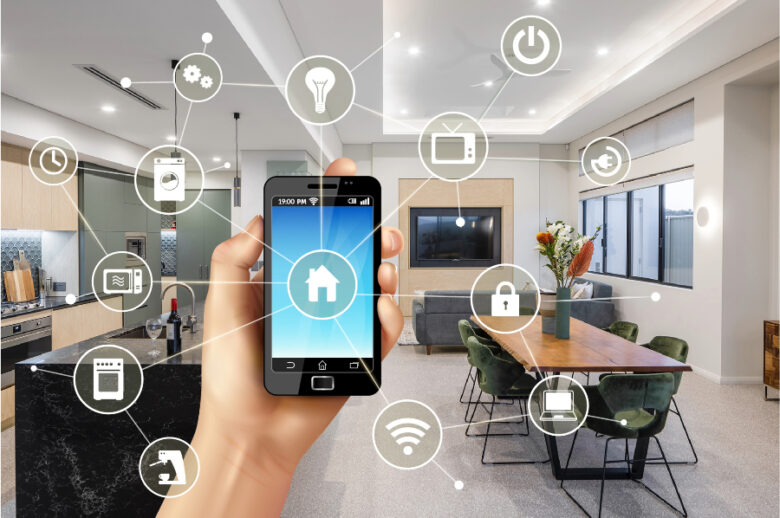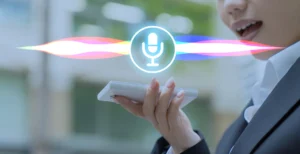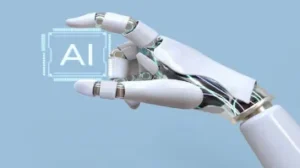Artificial intelligence (AI) has become an essential part of our homes recently. The concept of a smart home, once unattainable, is now a reality for millions of homes around the world. The advent of AI has taken devices beyond simple automation. They can learn how people use them, understand their daily habits, respond to voice commands, and even guess what they need. This change has transformed our daily lives, making them easier and more efficient. AI-powered smart home technology makes homes smarter and everyday tasks easier. They can control the temperature, turn on the lights, and even monitor the health of the home.
Voice Assistants, More than Just Talking
Voice assistants are one of the most common AI devices in smart homes. Products like Amazon Alexa, Google Assistant, and Apple Siri are no longer just voice assistants that answer questions and play music. With these AI assistants, which work with various smart devices, you can control the lights, door locks, thermostats, and appliances in your home using just your voice. Over time, these AI systems learn how you talk and what you like, sending you personalized reminders and responses. They can wake you up, create grocery lists, and even change TV channels. AI has given them the ability to transform from simple assistants to the core of home automation.
Thermostats that Learn your Lifestyle
Smart thermostats with AI are changing the way people control the temperature in their homes. Smart thermostats like Google Nest or Ecobee use AI to learn your daily habits and temperature preferences. These systems can automatically adjust the temperature based on when you’re home, away, or asleep. This keeps you comfortable and saves energy. Some systems even monitor the weather and adjust settings based on what they detect. Because smart thermostats learn your needs over time, their energy-saving features can help you save big on your energy bill. These devices are incredibly comfortable and efficient, and thanks to smart algorithms, they do it all with minimal input.
AI-Powered Security Systems That Keep You Safe
AI is enhancing the safety concerns of homeowners. AI now drives smart home security systems, which include cameras, motion sensors, doorbell monitors, and facial recognition systems. These technologies can identify movement and distinguish between people, pets, and other objects. When they detect something suspicious, they can immediately send an alert to your phone or trigger an alarm or light. Some systems can work with police or emergency contacts to provide immediate assistance. These AI devices can learn about their surroundings, which can reduce false alarms and make your home safer overall.
Lighting That Moves With You
AI-equipped lighting systems are a recent addition to smart homes. People can use brands like Philips Hue and LIFX to control lights remotely or set lighting schedules based on their daily activities. With AI, these systems can learn your behavior and recommend the best lighting for different tasks, such as reading, relaxing, or working. Some systems even adjust the brightness based on sunrise and sunset. Some systems can detect when someone enters or leaves a room and automatically turn the lights on and off. These smart lighting systems use AI technology to save energy and change the atmosphere in a room.
Robot Vacuums that Map your Home
AI robot vacuums like the iRobot Roomba and Roborock make cleaning your home easier. Equipped with sensors and advanced mapping technology, these devices maneuver swiftly and effortlessly throughout your home. Using AI technology, they can learn the layout of rooms, avoid obstacles, and even identify areas that require frequent cleaning. Users can control some models via an app, which enables them to set cleaning schedules and designate off-limits areas. These vacuums get better over time and can adapt to the needs of your home. They use smart technology to do the cleaning for you, making it easier and faster.
AI in Home Entertainment Systems
AI also enhances the home entertainment experience in several ways, making it more enjoyable for users. Today, smart TVs have built-in AI that can learn what you like and recommend shows based on what you’ve watched before. AI adjusts the brightness, contrast, and color of the picture to make it look better based on the type of content and the lighting in the room. Streaming devices and services also use AI to make personalized recommendations, making it easy to find new episodes, movies, or music that you like. By adding voice commands and gesture controls, AI makes entertainment systems more convenient and fun to use. Thanks to machine learning, this results in a smooth and immersive entertainment experience.
Conclusion
Smart home devices with AI have evolved from entertainment to a part of everyday life. These technologies transform homes into smart places that learn, change, and respond to users’ needs. AI is now an essential part of smart homes. It can control lights and temperature, secure your home, and help you with household chores. Anyone looking to improve their home environment should consider these gadgets, as they are convenient, energy-efficient, and customizable. As AI technology continues to evolve, it will play an increasingly important role in smart homes, making everyone’s lives easier, safer, and more connected.
FAQs
1. What are smart home devices?
A smart home device is an internet-connected gadget that allows for remote control or autonomous operation. These devices often use artificial intelligence (AI) to learn and adapt their behavior based on how people use them.
2. Do I need to be highly technical to use smart home devices?
The majority of smart home devices prioritize user-friendliness in their design. Setup is usually simple, and even a novice can control them with a voice assistant or app.
3. Are smart home devices that use AI safe?
Most devices have built-in security, but you should keep them up to date and use secure passwords. Choosing a trusted brand can also help improve your security.
4. Can smart home devices help you save money?
Yes, many AI devices, like smart lights and thermostats, can help you use less energy, which can lower your energy bills.
5. Are smart home devices compatible with each other?
Many devices are compatible with Amazon Alexa, Google Assistant, or Apple HomeKit. This allows them to work together and be controlled through a single app or interface.




